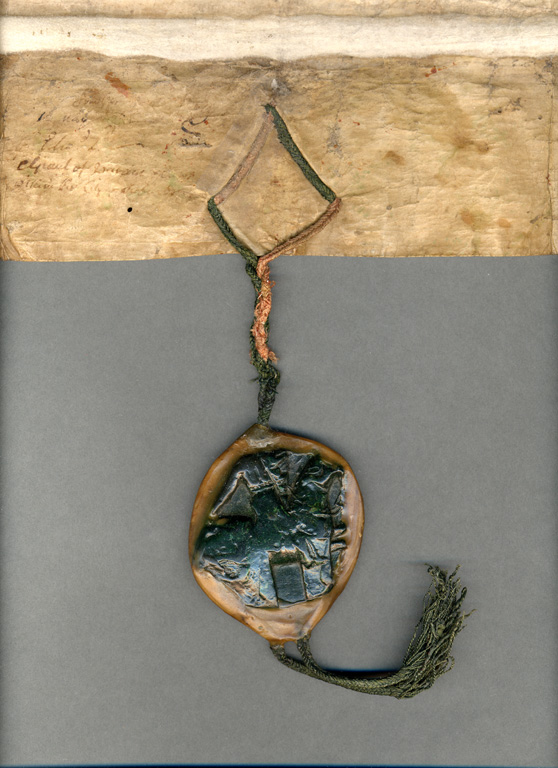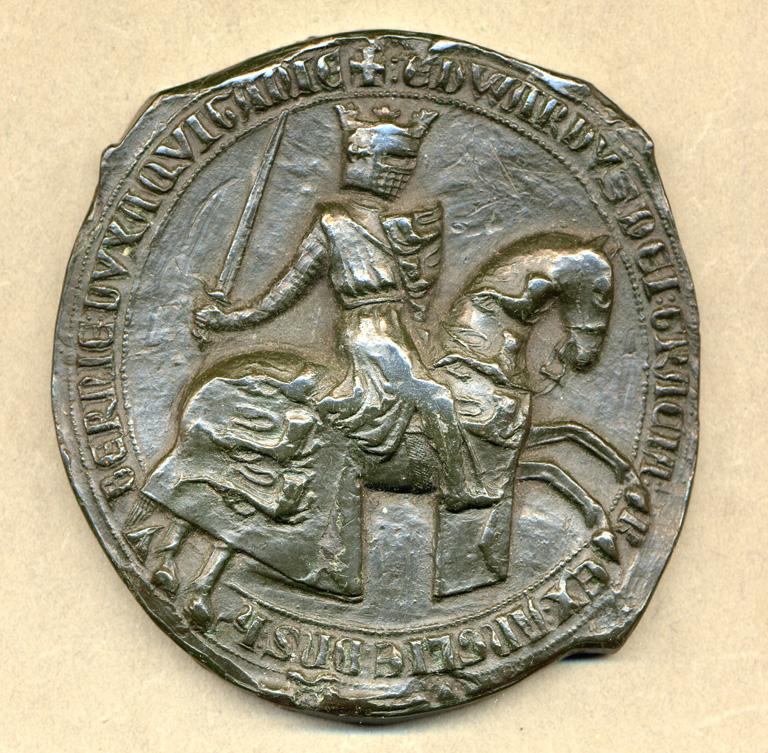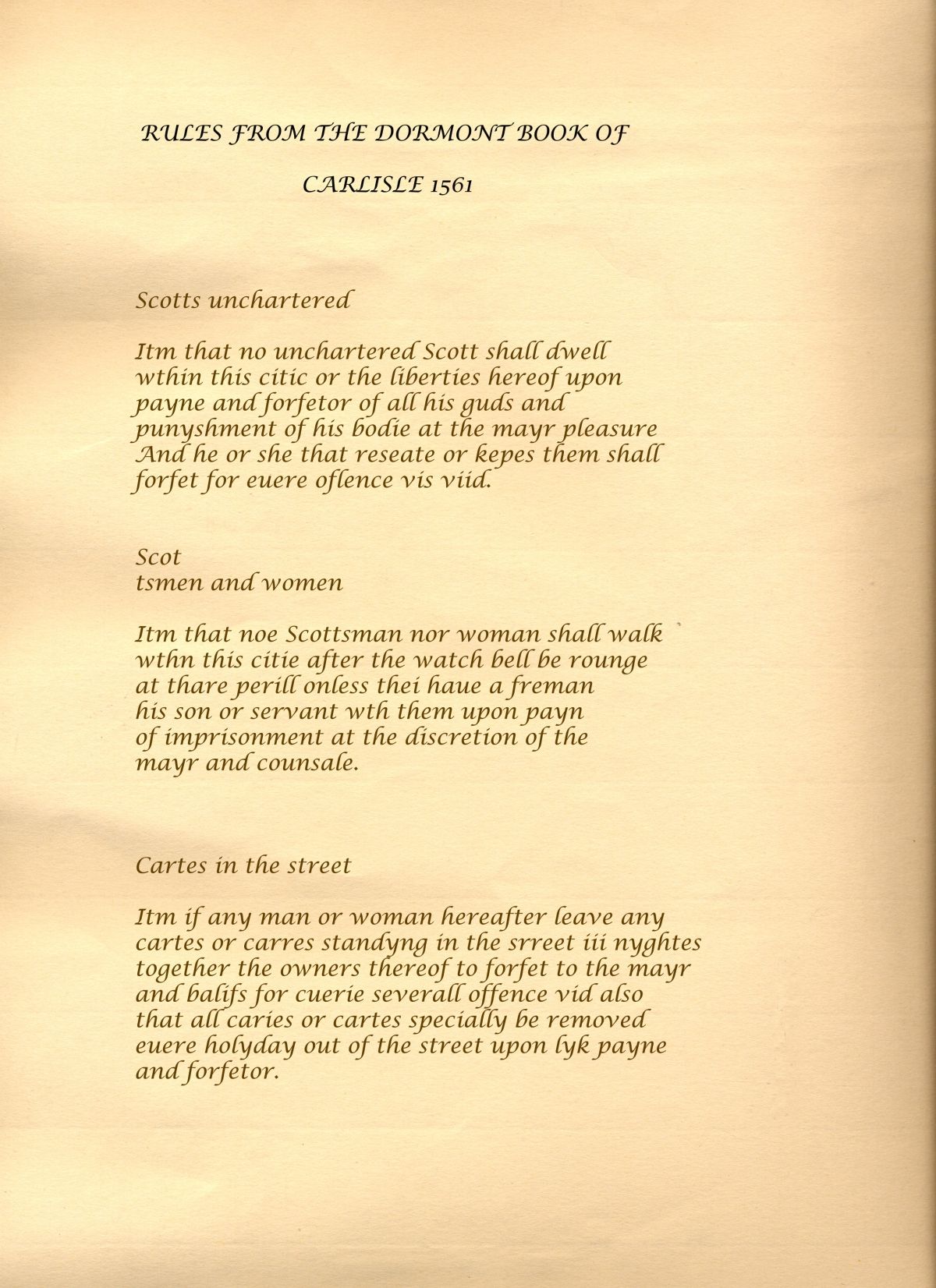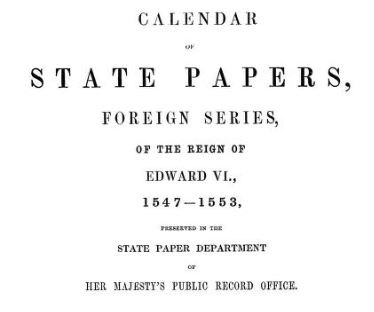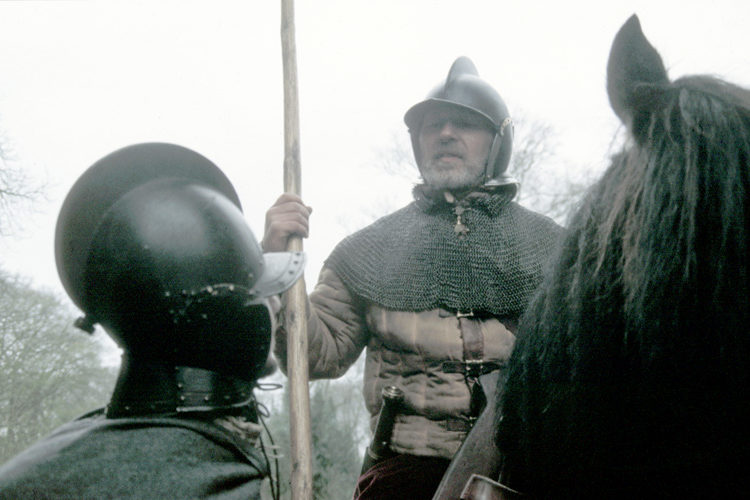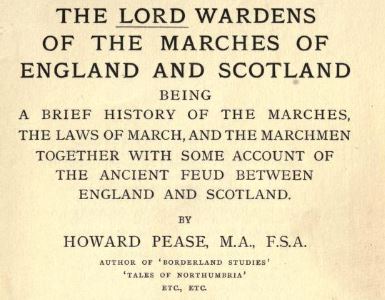“The Scottish navy was powerful enough and enterprising enough to interfere with the commerce of…

The Dormont Book of Carlisle
Unlawful Games
59- Item, if any person or persons suffer hereafter any unlawful games to be played at or within his house or garden shall forfeit for every time. And the player at the same games [fined] 6 shillings, 8 pence according to the statute of Henry VIII, 33 except such as be licenced by statute.*
*in 1512, Henry VIII banned ordinary citizens from a variety of games including cards, tennis, dice, bowls and skittles. The government were worried that games distracted the common people from their work, and might encourage rebellion! Henry was particularly afraid of the Northern wards. One of the closest approaches to a public uprising against the Crown was in a religious dispute against the dissolution of the monasteries and the rejection of Papal authority. Known as the Pilgrimage of Grace, it took place in 1536, less than thirty years before the Dormont Book. This period of time also saw great upheaval as all three of Henry VIII’s children became monarch in quick succession. It is therefore unsurprising that the fear of public disorder was still very much present.
Scottish Apprentices
46- Item, it is ordered that no [crafter] or man of occupation within this city hereafter shall take any man to be apprentice born beneath Blackford* on pain of 10 pounds to be forfeit to the city by any that shall do to the contrary.
*Anyone living North of the rivers Blackford or Irthing- i.e. Scottish people. Scots were feared by the townspeople, who frequently felt the effects of the Reivers, as well as frequent disputes between the English and Scottish crowns.
Dormont Book of 1561 was a book of Carlisle’s laws, and the oaths and duties of its officials. It was intended to be kept as a record within the city walls for the future use of the City. Book of constitutions and rules called “The regestar governor or dormont book of the commonwelth of the inhabitance within the citie of Carlell Renewed …1561”
Bye Laws
Financial regulation and public money
14- Item that neither the mayor and council that now is, or others hereafter shall lend, lay forth or disburse any of the Town’s money or goods to any person or persons… without consent of the corporation (The City government), and reserve not into the common chest a gage (account) of that money for true repayment thereof….. And also hereafter no money shall be laid forth, lent or disbursed without consent of four of every occupation*.
*Occupations being the eight trade Guilds who were becoming more prominent in the city.
The Common Chest
18- Item, where there are 4 keys of the common chest, it is ordered that the Mayor for his year shall have one, the ancient and most discreet of the council [shall have] one, and the other 2 keys to be in the keeping of two of the occupations by assignment of the Mayor….*
*Four keys were required to open the huge iron bound oak chest where the City documents, money, audits and people’s deeds were kept. This was to prevent fraud or false accounting.
Slander and Libel
31-Item, if any person or persons hereafter do scold, rail or misreport any man or woman inhabiting within this city… and proved with sufficient witnesses, then if he be a man to pay for every offence 6 shillings 8 pence, and if it be a woman to pay 3 shillings 4 pence beside further punishment of his or her body at the mayor’s discretion.
Freemen
37- If any freeman hereafter depart this city and not return again within the space of a whole year and a day*… then all such persons from henceforth shall be reputed and taken to be no freeman, and loose his frelidge** unless sufficient cause or excuse as the Mayor and Council will allow.
*Year and a day is a traditional space of time to pass in legal matters.
**Frelidge- the Freedom of the City. Free-men were the only men who could vote in elections, and had privileges within the city. The Mayor and Council were freemen, as were members of the eight Guilds. The Dormont Book also contains some more modern certificates of freedom of the City; including Woodrow Wilson, whose mother lived in the Carlisle! The Woodrow Wilson today is a well-known local pub!
Public Health and Cleanliness
39- Item, if any person or persons hereafter cast any manner of corruption such as dead dogs, cats, nolt horns* or any other corrupt thing in any of the common wells within this city, or [place] any midden, [or] dunghill towards any of the said common wells, or within 12 feet thereof, that every offender…. to forfeit … 6 shillings 8 pence, immediately to be levied from the offenders goods, or else to be extremely punished by the mayor… of the pillory ** or otherwise.
*the horn of a black bull or oxen.
**The pillory stocks still stand in the Border Galleries. These would have been placed in the City centre as a very humiliating public punishment.
Pigs in the street!
41- Item, that if any manner of person or persons hereafter [let] their swine* to go abroad in the open or common street shall for the first offence forfeit 6 pence, the second 12 pence and the third time the swine to be forfeit to the Mayor and Bailiff. …No person [to] set any swine trough in the open or common street on pain of forfeiture … 3 shillings 4 pence.
*Pigs were a common animal to be kept by families, even inside the City.
Unwholesome Vittells
43- Item that the mayor and council shall yearly appoint two clerks for the market, to take the oversight of all kinds of vittells* coming and being within the city and market… and that all unwholesome vittells taken either by the mayor, bailiff or clerk of the market shall either be burnt or otherwise [given] to the poor people by the mayor and bailiffs at their discretion.
Apprentices
60- Item, that no man’s sons, servants nor apprentices shall walk or go abroad in the street within the city after ten of the clock in the night, except it be upon their father’s or master’s business upon pain of punishment 2 hours in the stock the next day after, and further to be ordered by the mayor’s discretion.
Women Sole
96- Where a wife that has a husband uses any craft within this city…. Besides her husband’s craft or occupation, and that he mel not* with her said craft, this wife shall be charged as Woman Sole.** And if the husband and wife be implicated in such case, the wife shall plead as Woman Sole, and if she be condemned, she shall go to ward until she has made agreement, and the husband nor his goods shall not in this case be charged. And if the woman refuses to appear and answer, her husband or servant is to bring her in to answer.
*Is not involved in
** The woman sole is responsible for answering any debts or charges incurred in her separate industry, and her husband is not responsible for paying her debt.
Debtors
109- If a person find his debtor suddenly within the city [from which the debtor had previously left] or is a fugitive which… would escape before the creditor might have an officer to make the arrest, it is accustomed that in such case that the free-man himself [with the] aid of neighbours without an officer may arrest his said debtor and bring to an officer of the town thereto to put in surities to answer*
*Debtors were either incarcerated until their debt was repaid or had to provide sufficient security against the re-payment of the money owed. Debtors prisons were in action in Britain until well into the Victorian era. Charles Dicken’s Little Dorrit is based in such a prison.
Meat at Market
111- Item, that no outman shall bring any flesh to the market to be sold unless they bring the skins therewith, and that all sheep skins be fastened to some part of the carcass on pain of forfeitor of the same*
*This prevented the skins being hoarded until the prices went up, but also ensured that the meat sold was able to be identified and honestly traded.
Forestalling
112- That no manner of person or persons shall buy any manner of vittels* before they come into the market… on pain of forfeiture of the same, and to be punished as a forestaller**
*goods/ food stuffs
** forestalling was the selling or trading of goods before the market bell was rung, and before the market was officially opened. Trade at other times was not permitted in the most part in Tudor Carlisle.
Curing skins
123- Item that no butchers hereafter shall bacon* any sheep skins either of their own killing or of others in pain of forfeiture for every time… 20 shillings.
124- Item, that glovers shall bacon* no sheep skins hereafter on pain aforesaid.
*Bacon- To cure. Tanners treated cured skins for use in many leather crafts. These laws prevented other crafts specifically involved with leather from curing the skins themselves to be hoarded and sold when the prices were high.
https://thedormontbook.wordpress.com/laws-and-legacies-extracts-from-the-dormont-book/


